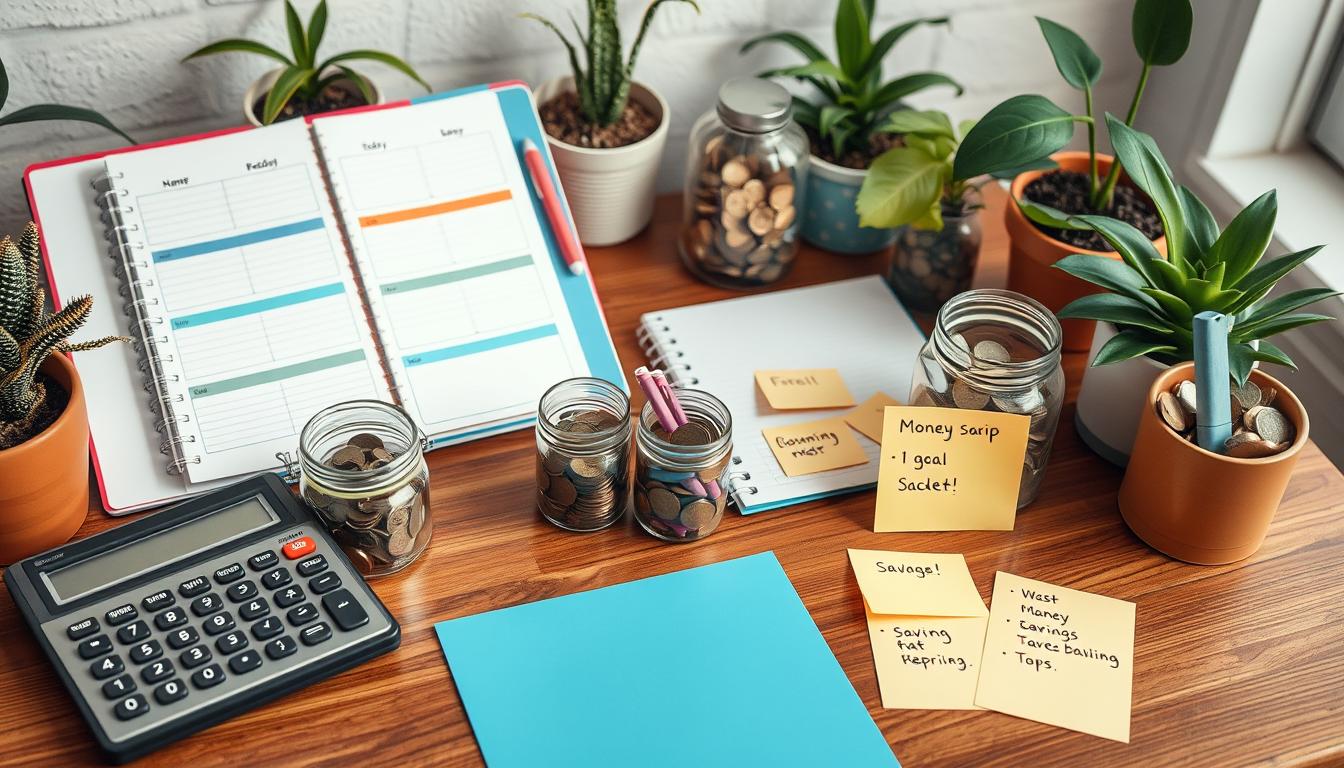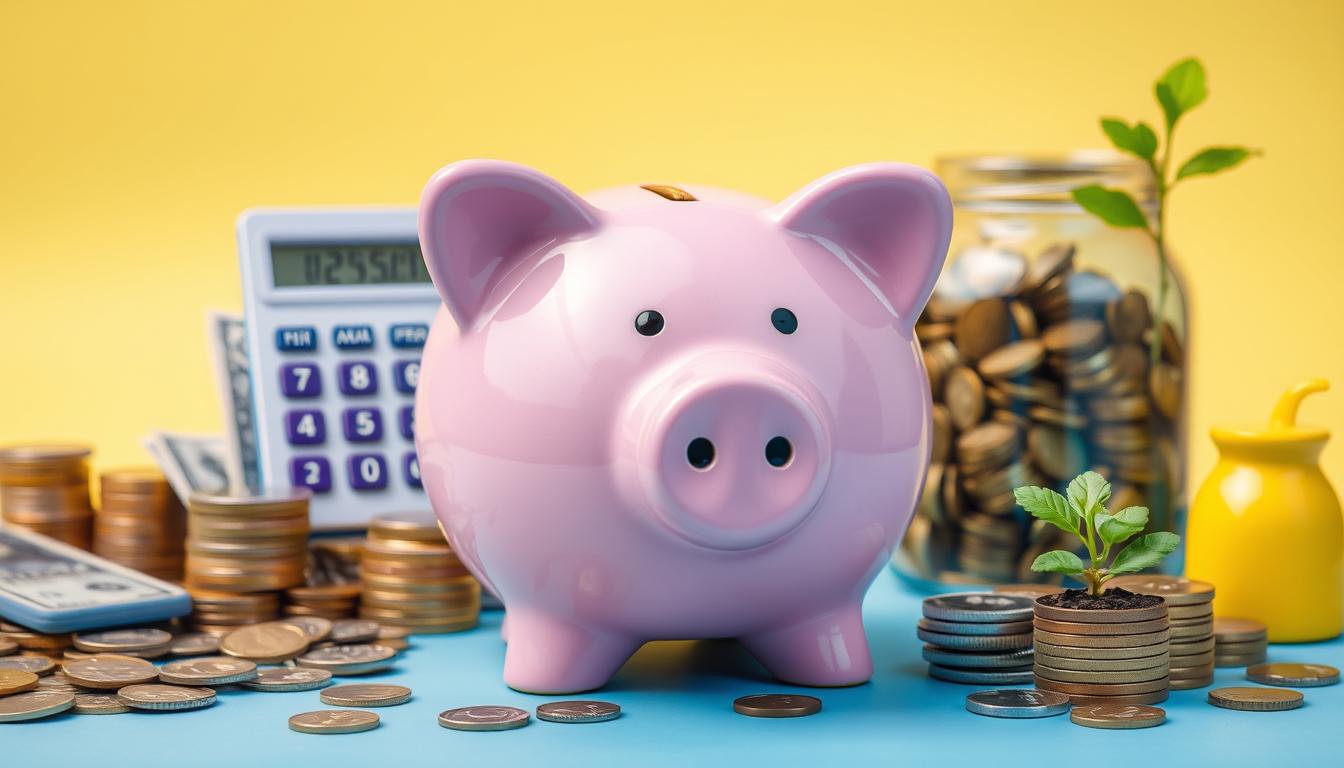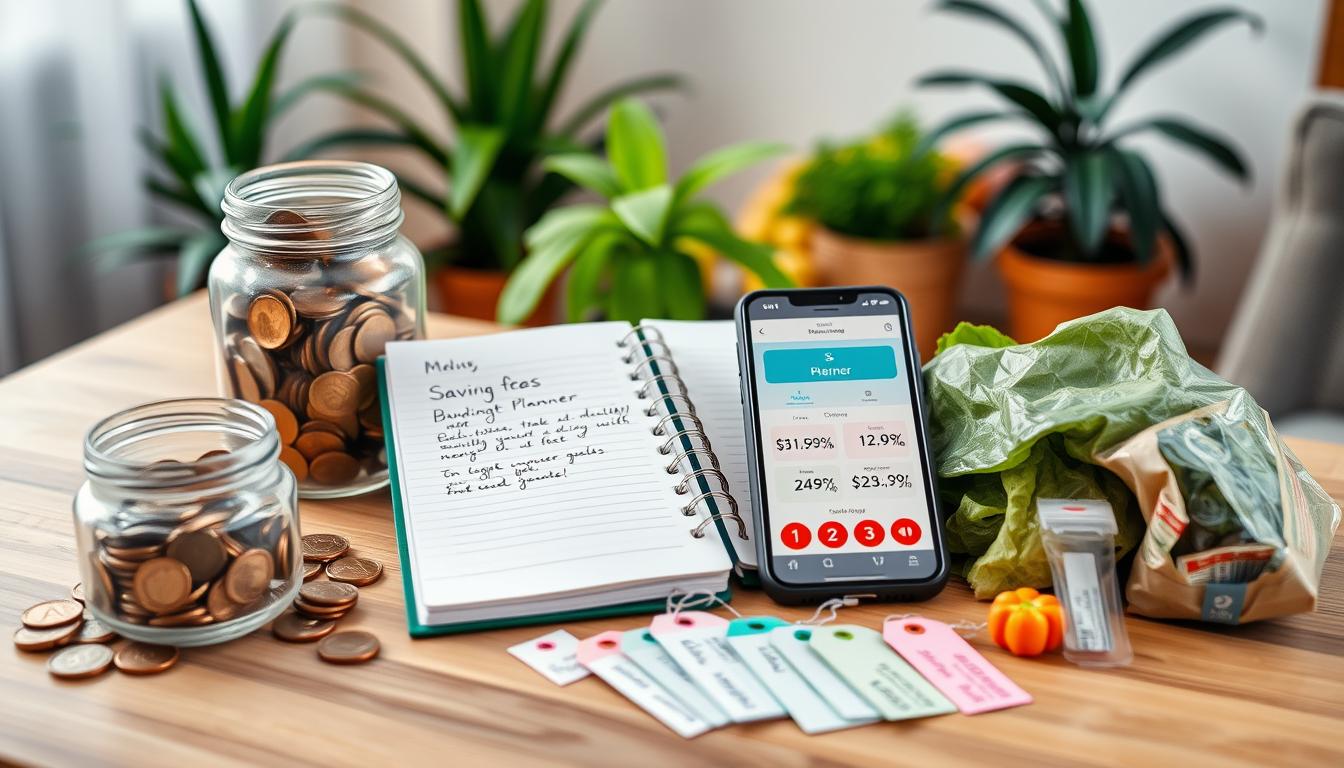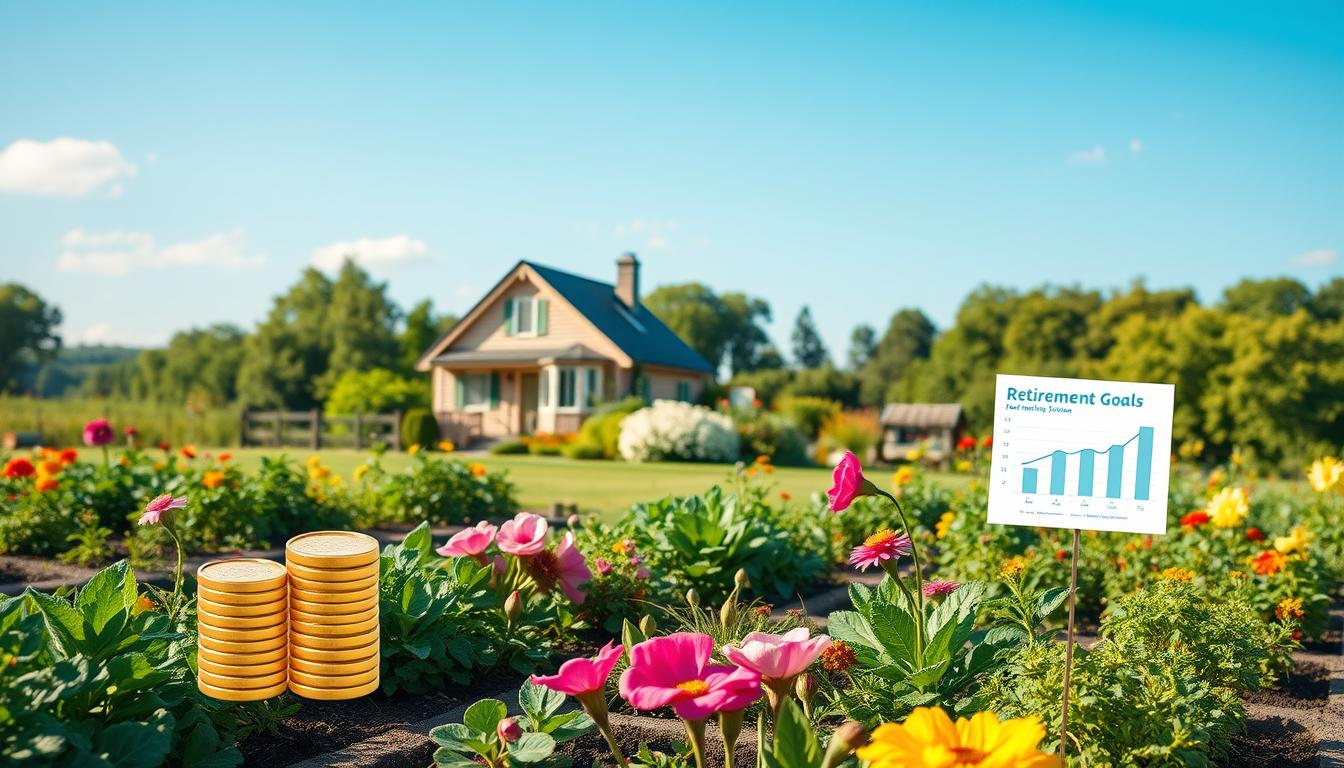Did you know nearly 65% of Americans live paycheck to paycheck? This fact shows why smart budgeting is essential today. It’s not just advice, but a must-do to better your financial life1. About half of those who budget see it as a team work. This means working together on saving tips brings better results and sticks to money goals1. This piece shares smart and doable money tips from everyday folks. They help save cash and reach financial dreams.
Learn how to track spending and try new budgeting ways. These insights will guide you to money discipline and freedom. Let’s dive into these brilliant budgeting tips that could makeover your life!
Key Takeaways
- 65% of Americans are living paycheck to paycheck, emphasizing the need for budgeting.
- 50% of budgeters view it as a shared responsibility.
- Food expenses often account for around 12.8% of your budget.
- Emergency funds covering a few months’ expenses are essential for financial stability.
- Loud budgeting is gaining popularity thanks to social media and encourages community support.
The Importance of Smart Budgeting in Today’s Economy
Today’s economy makes smart budgeting more important than ever. It helps you control your spending and save money. Nearly 36% of US adults have more credit card debt than savings2. This shows why managing money carefully is essential. With the cost of living on the rise, having a budget helps protect against financial worry. It also helps you reach your big goals for the future.
Getting finances stable is tough for lots of people. Debt.com reports that 49% still use pen and paper for budgeting. Only about 1 in 5 people use digital tools3. This shows that different budgeting methods work for different people. Setting up a budget is a key step to a more secure financial life.
The cost of living hits hard, especially during the holidays. The average American family spends over $1,000 in this season3. It’s important to learn how to budget well during these times. Using budgeting tools can help. For example, Tiller costs $59 a year, while YNAB is $84 a year3. Knowing these costs helps fit them into your budget plan.
Smart budgeting can really change your financial picture. Say you invest $10,000 a year with an 8% return. In 40 years, that could grow to over $750,0004. This shows the power of good budgeting over time. A strong budget helps you handle your money well. It also prepares you for economic changes and a brighter financial future.
Inspiring Tips from Everyday People
People everyday give great budgeting advice for reaching your money aims. Take the “100 Envelope Challenge” as an example. It urges you to save a specific dollar amount each day for 100 days. By the end, you’ll have a cool $5,050 saved5. It’s not just about saving money; it also teaches you financial discipline. Holly Carter managed to save $1,627 in just 42 days by following this approach5.
When it comes to saving money as a group, sharing tips is key. In the U.S., about 31.9% of food gets thrown out by families. This mistake costs about $1,866 every year per household6. If you keep your fridge and pantry organized, you can track what you have and waste less. This way, you can turn a common spending mistake into savings.
Many have seen how easy budgeting can be with the right tools. Apps like Honey Due, Empower, and Goodbudget5 make managing money a breeze. And when you budget “out loud,” you share your money goals with friends. This makes a friendly space that encourages good spending habits5.

You Won’t Believe These Genius Budgeting Tricks from Everyday People!
Budgeting can be fun with everyday finance hacks. Many have discovered creative ways to manage money. Saving $10 or $20 weekly can lead to $1,000 in a year. This is great for covering surprises without going into debt7.
Trying the 50/30/20 rule can clear up your finances. Spend 50% on needs, 30% on wants, and save 20%7. This method helps you grow financially while still enjoying life.
Little cuts in spending can make a big difference. For example, skipping expensive coffees can grow your savings7. Automatic transfers to your savings make saving thoughtless and easy.
Using the envelope system helps manage money for food, family, and more. It has helped some pay off over $10,000 in credit card debt8. People find weekly budgeting easier and more effective than monthly8.
Keep track of your savings with a spreadsheet or app. Celebrate when you save your first $5007. The envelope method teaches you to watch every dollar. It helps shift any extra money to debts or savings8.

Changing daily money habits might require new saving tactics. Unlinking cards from online accounts cuts down on impulse buys. Deleting shopping apps also helps control spending9. These strategies not only improve your budget, but they also show how creativity can change your finances!
Effective Apps to Simplify Your Budgeting Process
In today’s world, managing your money can be easier with the right finance apps. These tools have simple to use interfaces that make budgeting a breeze. You can keep track of your spending without stress. Here’s a look at some top options that could change how you manage your money.
Popular Budgeting Apps to Consider
There are several finance apps known for their ease of use and effectiveness. Let’s explore a few choices:
- Acorns: Offers subscription plans from $3 to $5 per month, based on your chosen tier10.
- Goodbudget: Gives a free plan with ten regular envelopes and ten more for extras; the premium version costs $6 monthly or $50 yearly11.
- YNAB: You can try it for free for 34 days, after which it’s about $7 monthly or $84 a year11.
- Mint: This app lets you see your entire financial picture, showing spending, balances, and your credit score.
- Albert: Highly praised, Albert aids in saving money and reaching financial goals, starting at $8 monthly10.
How Apps Can Personalize Your Budgeting Experience
Finance apps today do a great job at making budgeting personal. They adapt to your spending habits and goals. Using analytics, they build a budget that fits your life perfectly. For example, first-year YNAB users often save around $6,00011.
Apps like Digit and Qapital, starting at $5 and $3 per month10, track spending smoothly while also predicting future expenses. They send reminders for bills and offer advice on improving your budget. This way, you can manage your money in a way that suits you best.

The 100 Envelope Challenge: A Fun Savings Method
The 100 Envelope Challenge is a fun and effective way to boost your savings. You label 100 envelopes with numbers 1 to 100. Then, put in the same number of dollars as the envelope’s number over 100 days. By the end, you can save $5,050, helping you reach your financial goals12. You can start with $1 on the first day or mix it up to match your budget. This makes it great for anyone wanting to save more in an enjoyable way.
How It Works and Why You Should Try It
The method is simple but exciting. You pick two envelopes randomly, twice a week, and fill each with cash over 25 weeks. This can add up to £5,050 in the UK13. It’s perfect if you love surprises and need help saving. Put money in the envelopes and don’t take any out until the challenge is over. This builds discipline and keeps you motivated13. Pairing this with a high-yield savings account can boost your interest earnings and help you stay focused.
Success Stories from The Challenge
Many have shared how the 100 Envelope Challenge changed their savings game. One person saved over $5,000 in less than a year14. The idea has been popular, with over 1.3K shares online14. These stories show that sticking with the challenge not only boosts your savings but also connects you with others. If you want to better your finances, this method could be the key.

Practicing “Loud Budgeting” for Financial Accountability
“Loud budgeting” is about talking openly about your financial goals with others. This method leads to a culture of financial transparency. Here, everyone can help each other stay on track.
By sharing financial plans and dreams, people often form support groups. This helps everyone manage their money better. It can also mean doing things together, which saves money instead of spending it on expensive outings.
Studies show that talking about money leads to better money management. Those who know a lot about finances tend to save more and spend less than they make15. Knowing more about money also helps communities. It can improve schools, jobs, and even lower crime rates15.
Talking about money makes managing it less confusing. Sharing your experiences helps you see you’re not alone. You learn new ways to be responsible with money together.
Many parents don’t talk to their kids about money, which leaves a gap in their understanding15. Open talks about budget challenges and saving goals can help young people learn about money.
The benefits of understanding money better reach beyond just one person. They strengthen the whole community15. By practicing loud budgeting, you’re not just helping yourself. You’re setting an example of openness and mutual support.
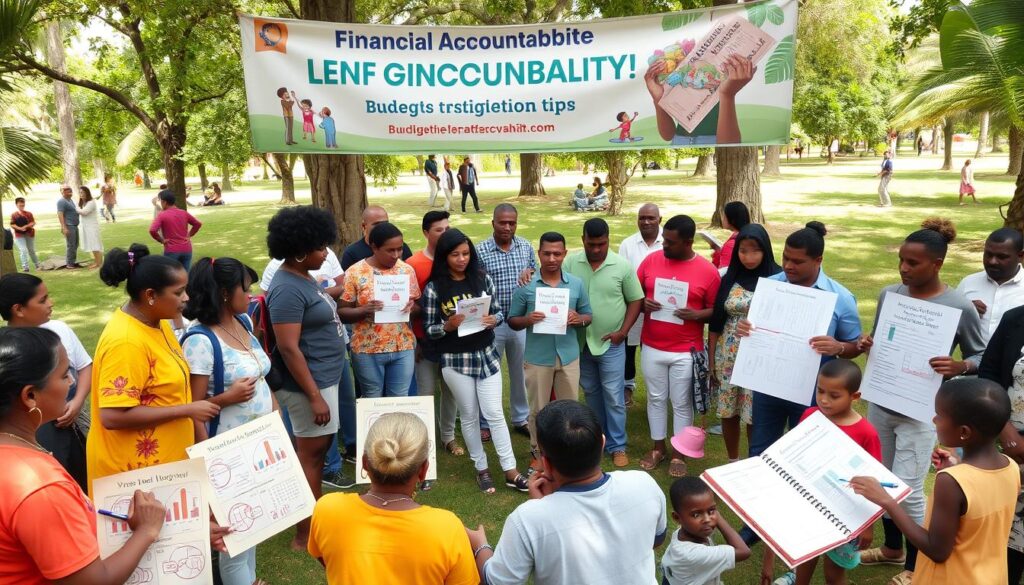
Comparison Shopping: Saving Money on Insurance
Understanding insurance comparison is key in today’s economy. It helps you maximize your financial savings. By examining and contrasting different insurance plans, you can cut down on your expenses significantly. People often discover that regular checks of their coverage leads to big saving on coverage.
How to Make the Most of Insurance Deals
One smart move is to use tools that bring together insurance quotes. This makes comparing plans simple. You should:
- Check your current policies often to find any overlooked areas or too expensive coverage.
- Consider combining your policies—like your house and car insurance—with the same company for discounts.
- Talk to insurance agents to see if they can offer the same rates as their competitors. This ensures you get the best deal.
Many people don’t use their insurance savings to the fullest because they don’t know about better options16. It might surprise you that many respected insurance firms not only settle claims quickly but also provide excellent customer service17. Keeping this in mind helps you make smarter choices, leading to significant financial savings.

Extra Income Ideas: Side Gigs That Boost Your Budget
Looking into different side income ideas can really help your wallet. Getting into the gig economy lets you earn money through many ways. For example, you can use sites like Freecash. They’ve given users over $13 million since 201918. This site is well-liked, with more than 50,000 five-star reviews on Trustpilot. Just by completing tasks, users can make over $1,000 extra18.
Taking your talents online is another way to make more money. Creating online courses can bring in a lot of cash. In fact, some folks made “several hundred thousand dollars from a couple of mine last year”19. Finding a profitable idea might be hard at first. But, once you hit on the right subject, the earning potential is huge.
Renting out your property, or even a parking spot, can make a lot of passive income. It’s especially good in busy city areas19.
Affiliate marketing is another route many take in the gig economy. Though, how well you do can vary a lot. Investing in dividend stocks is a choice too. These stocks pay out earnings to their owners19.
There are many side gigs out there. Take your time to find the ones that match your skills and interests. This way can lead to more money and healthier finances.

Conclusion
There are many budgeting tips out there that help people manage their money better. Some include the 100 Envelope Challenge, YNAB, the JARS system, and comparison shopping. These methods improve financial health by helping save money and reduce debt. For example, a couple used YNAB to pay off $8,000 in debt20.
Interestingly, users of the JARS system increased their net worth by 45% in just a year. This shows the power of smart money management. Also, earning passive income, like property rental, boosts financial growth21. Indeed, trying out a few of these strategies can greatly enhance your financial stability.
Exploring these budgeting strategies is a step towards reaching your money goals. Take advice from those who have seen success. This way, you can manage your finances better, ensuring peace and future security. The path to financial health is within reach with dedication and the right resources!
